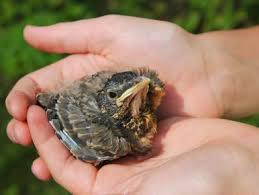
California, Colorado, United States, 3rd Sep 2024, - Feeding is essential when it comes to baby birds and if you want them to survive properly, then knowing what they should be fed with What do baby birds eat? From the diet of an orphaned chick to how you can hand-feed a young wild bird in captivity, what they need is crucial for their survival. The following is a press release providing critical information on safe baby bird feeding and what not to do:
Understanding the Dietary Needs of Baby Birds
Nestlings or baby birds have special dietary needs, as they grow incredibly fast. Chicks need high-protein foods to help develop their feathers, muscles, and bones. In the open, adult fowl frequently nourish their chicks with bugs and worms, as well as other modest creatures they bring up like a fluid material for your child birds. This is a natural diet full of nutrients they need for their rapid growth.
Emergency Feeding: What to Feed a Baby Bird
You may like Bird Baths for Our Feathered Friends or you could also have found an abandoned baby bird, see what to feed a baby bird in an emergency here. It is always great to mimic their natural diet, still the following can serve as some temporary aesthetic:
Balanced Diet for Homemade Bird Food
Making a homemade diet is good for those who are caring for baby birds over time as it mirrors their natural food. You can blend the ingredients and have a nutritional drink, here is a simple recipe to achieve a balanced diet.
Ingredients:
Instructions:
The mixture of components provides a budgie diet with all the basics (with protein, fats, vitamins, and minerals) similar to what it would feed itself as a rundown baby bird in the wild.
Recognizing Feeding Patterns
The pause between foods and feeding frequency is every bit as crucial. Baby birds, because of their fast metabolism, will need to eat fairly regularly throughout the day. They need feeding every 15–20 minutes of daylight hours in the first week.
Feeding intervals: They will eat every 10–15 minutes at a time when born and as they grow feeding intervals can be higher to about being fed every 30 minutes — an hour up until it starts hitting/feedings starting every couple of hours by a few weeks old.
Avoiding Common Mistakes: Foods to Avoid
Feeding Baby Birds Inappropriate Foods Can Kill Them, Be sure to avoid the following:
Conclusion
Baby birds need to be fed in a very specific manner, and without knowledge of feeding them properly at best (or allowing yourself or someone else to end their lives at worst) Feeding the correct food, imitating what they eat naturally, and not make a mistake it will ensure this delicate creature grow well-being.
If you are caring for an orphan chick or a wild bird in captivity, this post will give insight into how to best care for and provide nutrition so that they can be returned to the wild.
To learn more or to reach an Avian Care Specialist, please [Your Contact Information].
Organization: Birdfy
Contact person: Stella Huang
Website: https://www.birdfy.com/
Email: birdfy@netvue.com
Contact Number: 18667490567
City: California
State: Colorado
Country: United States
Release id: 9553
Disclaimer: The views, recommendations, and opinions expressed in this content belong solely to the third-party experts. This site was not involved in the writing and production of this article.
